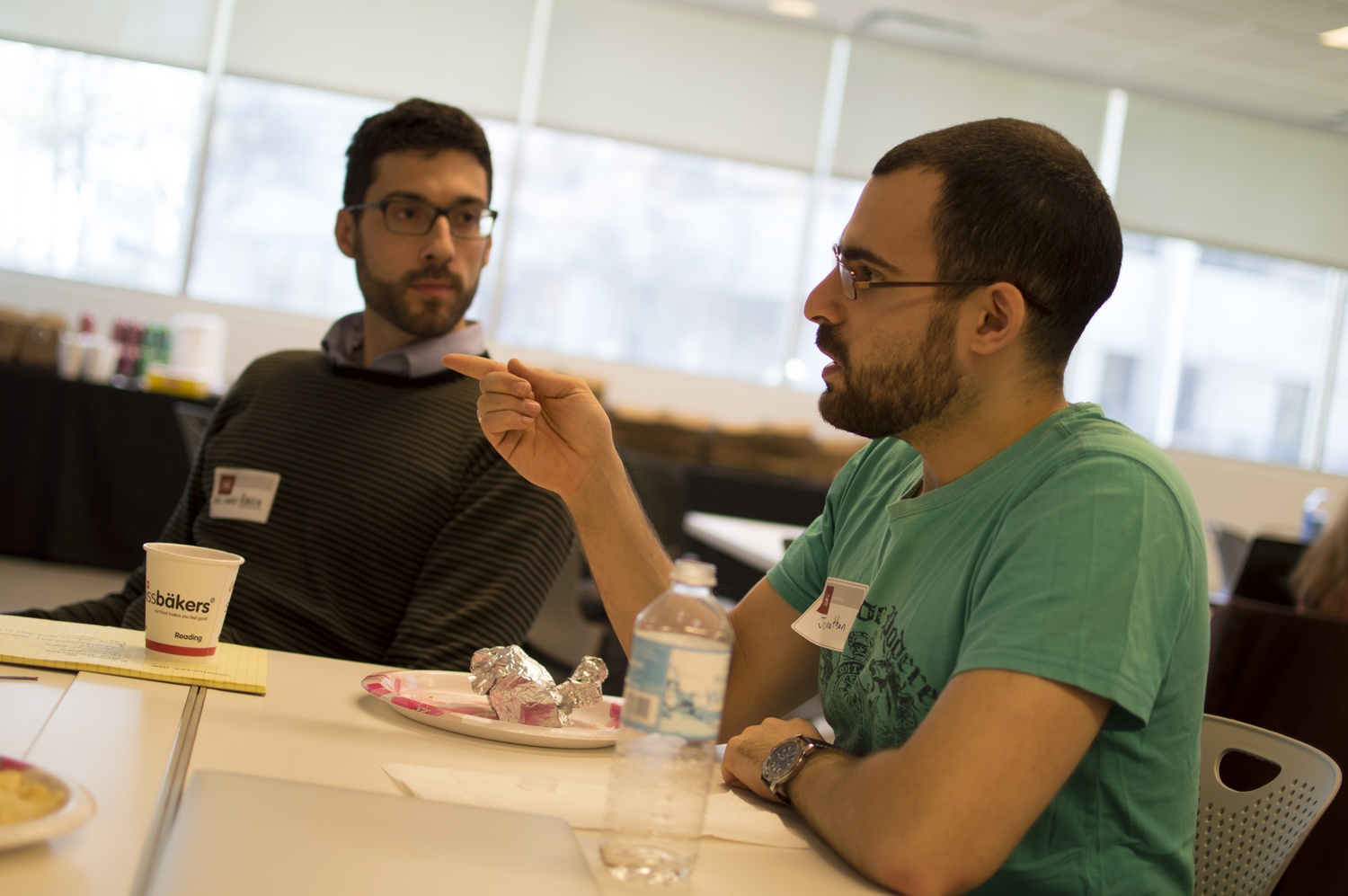
News
Cambridge Residents Slam Council Proposal to Delay Bike Lane Construction

News
‘Gender-Affirming Slay Fest’: Harvard College QSA Hosts Annual Queer Prom

News
‘Not Being Nerds’: Harvard Students Dance to Tinashe at Yardfest

News
Wrongful Death Trial Against CAMHS Employee Over 2015 Student Suicide To Begin Tuesday

News
Cornel West, Harvard Affiliates Call for University to Divest from ‘Israeli Apartheid’ at Rally
Harvard Holds First Sustainability Hackathon

More than 20 participants from across the University, other Boston schools, and the Boston and Cambridge community tackled several environmental issues at the first Sustainability Hackathon at the Harvard Innovation Lab on Saturday.
At the hackathon, hosted by the Harvard Environmental Action Committee and the Harvard Council on Business and the Environment, attendees formed groups of three and addressed one of seven possible topics—food waste, business and private residence engagement in sustainability efforts, Boston’s car-centric commuter culture, and chemical management in labs.
The hackathon ended with each group presenting possible solutions for these current sustainability challenges.
Hackathon organizer, Abhinav Bhushan, a research fellow in surgery at Massachusetts General Hospital and Harvard Medical School, received a grant from Harvard’s Office of Sustainability to host the event.
Participants spent most of the day researching their topics. Groups presented proposals ranging from an improved tracking system to reduce chemical waste to an electronic waste disposal system that could be implemented at the University. Others sought ways to promote business and political involvement in creating more sustainable initiatives.
“This could be run as a thought experiment…but instead we’re having people address specific [issues] in order to create robust models to actually implement in the Boston and Cambridge area,” Saad Amer ’16, co-president of the Harvard Council on Business and the Environment, said.
Presentations were judged on their level of innovation, impact on sustainability, practicality, and presentation style. Winning teams received certificates based on their final rankings. Judges included representatives from Massachusetts General Hospital and the University.
“Bringing people together from different backgrounds to talk about these issues generates these ideas that everyone in their silos wouldn’t come up with [on their own],” said Holly W. Samuelson, a professor at the Graduate School of Design and one of the hackathon judges.
Although he felt that event attendance was low, Bhushan said he believed the event was a success given the quality of the presentations and feedback from the judges.
Amer said that some of the participants’ ideas will be presented to staff at the Office of Sustainability as it formulates a new sustainability plan for the University.
—Staff writer Kristina D. Lorch can be reached at klorch@college.harvard.edu.
Want to keep up with breaking news? Subscribe to our email newsletter.
